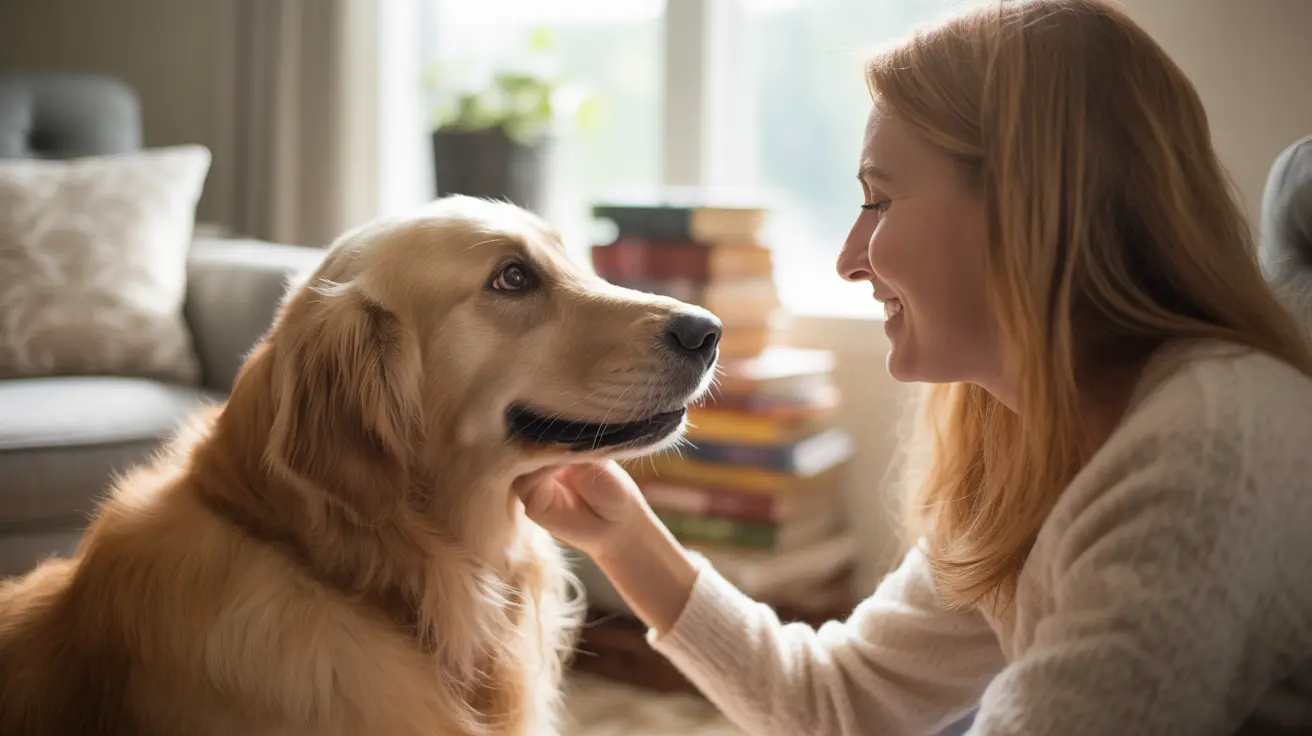The profound bond between humans and dogs goes far beyond simple pet ownership. This deep connection, supported by scientific research and evolutionary history, reveals fascinating insights into why we form such meaningful relationships with our canine companions.
From the release of "love hormones" during interactions to the countless physical and mental health benefits, our love for dogs is backed by compelling evidence that explains this unique cross-species bond. Let's explore the fascinating reasons behind our enduring connection with these remarkable animals.
The Biology of Human-Dog Bonding
The science behind our love for dogs is rooted in powerful biological mechanisms. When we interact with dogs, our bodies release oxytocin, often called the "love hormone," which creates feelings of attachment and trust. This same hormone is responsible for parent-child bonding, explaining why many people view their dogs as family members.
Research shows that just 5-24 minutes of positive interaction with a dog can significantly increase oxytocin levels in both species. This chemical response creates a mutual feedback loop of affection and trust, strengthening the bond with each interaction.
The Evolutionary Connection
Our relationship with dogs spans thousands of years, with archaeological evidence dating back at least 15,000 years. This long-standing partnership began with mutual benefits - humans provided food and shelter, while dogs offered protection and hunting assistance.
Through selective breeding, dogs have developed an unprecedented ability to understand human gestures, emotions, and social cues. They can read our facial expressions and respond to our emotional states in ways that even our closest primate relatives cannot match.
Health and Wellness Benefits
The physical and mental health benefits of dog ownership are well-documented. Dog owners generally experience lower blood pressure, reduced stress levels, and decreased risk of cardiovascular disease. Regular dog walking contributes to better fitness levels and weight management.
Studies by the CDC have shown that dog owners typically have lower cholesterol levels than non-owners. Furthermore, heart attack and stroke survivors who own dogs show a remarkable 24% reduced risk of death from all causes.
Emotional Support and Unconditional Love
Dogs offer a unique form of emotional support that many find irreplaceable. Unlike human relationships, which can be complex and conditional, dogs provide pure, unconditional love. They don't judge based on appearance, status, or past mistakes.
This unwavering acceptance creates a safe space for emotional expression and healing. Studies show that 85% of pet owners report reduced feelings of loneliness through interactions with their animals, with dogs being particularly effective at providing emotional comfort.
Social Facilitation and Daily Joy
Dogs serve as natural social catalysts, helping their owners form connections with others. Whether at dog parks, during neighborhood walks, or in pet-friendly establishments, dogs create opportunities for social interaction and community building.
The daily routines of dog care also provide structure and purpose, while their playful nature brings moments of joy and laughter into our lives. Their enthusiasm for life's simple pleasures often helps us appreciate the present moment more fully.
Frequently Asked Questions
How does the human-dog bond affect our mental health and stress levels?
The human-dog bond significantly reduces stress levels by lowering cortisol (stress hormone) levels and increasing oxytocin production. Regular interaction with dogs can help decrease anxiety, depression, and feelings of isolation.
Why do people form such strong emotional attachments to their dogs?
Strong attachments form due to the combination of biological factors (oxytocin release), dogs' unconditional love, and their ability to provide consistent emotional support without judgment. The relationship mirrors parent-child attachment patterns.
How does oxytocin play a role in building the connection between humans and dogs?
Oxytocin is released during positive interactions between humans and dogs, especially during eye contact and physical touch. This creates a mutual bonding cycle that strengthens the emotional connection between both species.
Can interacting with dogs really reduce feelings of loneliness and what are the benefits?
Yes, dog interaction significantly reduces loneliness. Benefits include increased social interaction, constant companionship, and the feeling of being needed and loved. Studies show that 85% of pet owners report reduced loneliness through pet interaction.
What are some practical ways to strengthen the bond between a dog and its owner?
Key ways to strengthen the bond include regular positive training sessions, daily exercise together, maintaining consistent routines, providing mental stimulation through games, and spending quality one-on-one time through activities like grooming or relaxed petting sessions.
Conclusion
The science behind why we love dogs reveals a complex interplay of biological, psychological, and social factors that create an extraordinarily meaningful relationship. From the release of bonding hormones to the numerous health benefits and unconditional love they provide, dogs have earned their place as our most beloved animal companions.






